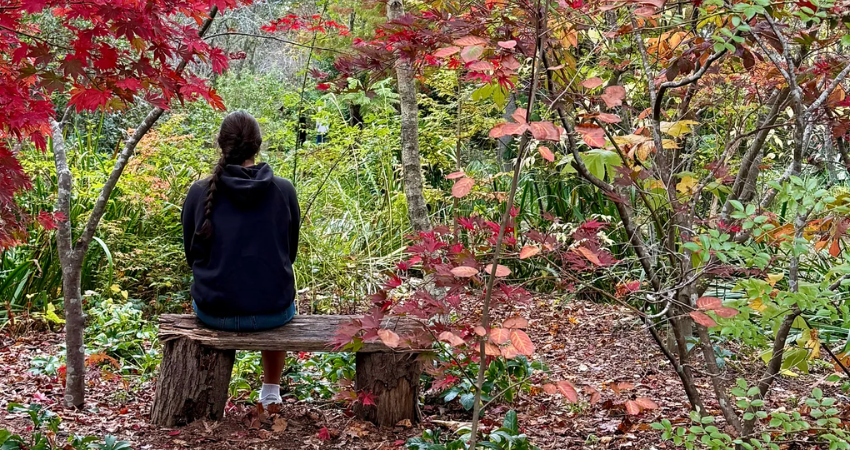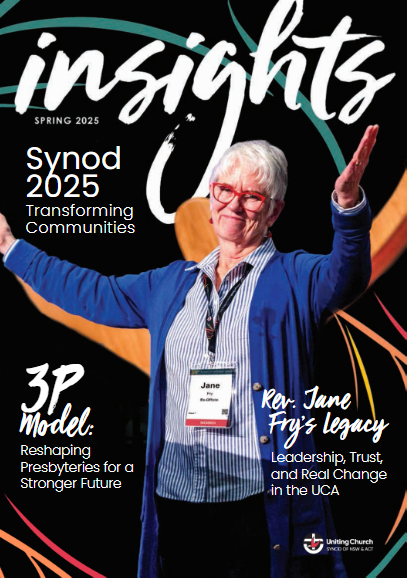I borrowed this title from an article in The Atlantic that a friend sent to me. I was drawn to the use of the comparative – why quieter? Why not simply a “quiet” ego? Before even reading the article what came to mind is gone are the days where we self-deny and state that the self does not matter -many religions have attempted to promote this one-sided theology with usually disastrous consequences. Clearly, we do matter. So maybe we don’t squash the ego but do we need to turn it down a notch? Is that the message for our times? Would we agree that we are all shouting louder, increasingly putting ourselves forward and promoting our every thought more than ever? Have we reached a point where we have become unbalanced and tipped the scale towards a hyper self-focus? And could the remedy be to step back, say no, reduce, move downward rather than upwards, pull away, stay put and find alternatives to our usual modes of doing things that wear us out? Not completely, but just a notch?
Have we always been like this – hyper self focused – or is it a recent phenomenon? I’m sure there are people who study this kind of thing, and the article points to such people and statistics, but when I look around me and notice how people are talking and behaving I do wonder if we are moving more and more towards a society with individuals who have inflated egos. I’m not excluding myself from all of this. I struggle with the tension between remaining quieter and sharing or promoting my thoughts and work. I too contribute to the noisy, overwhelming and distracted atmospheres in our communities.
The article suggests this, that we are more self-focused than ever. However the irony is that we are at the same time, more depressed than ever. The author writes;
An intense focus on self is an evolved trait, scientists suggest, because it confers competitive advantages in mating and survival. But research has also shown that to be so focused on self can be a primary source of unhappiness and maladjustment. So what appears to be happening is that we have developed culture and technology that together supercharge this primal drive of self-reflection—to such an unhealthy and unnatural extent that it has the paradoxical effect of ruining our lives.
It reminds me of the term survival of the fittest often attributed incorrectly to Darwin who is said to have championed competition. This has set the tone for our society – the capitalist impulse is propelled and given a rationale by this ubiquitous phrase. However Darwin never said it nor did he champion competition, he stated that survival and flourishing happens when there is adaptation. So people, nature and communities thrive when they are responsive and change and adapt. Darwin also said that our strongest instinct is sympathy. Research shows that our brains light up when we do things for other people – or take the focus off ourselves. I was fascinated to learn that the feeling of compassion is very old in our nervous system – it sits in the oldest part of the brain. So in evolutionary terms it was there very close to the beginning. It’s why animals seem to display empathy or compassion and desire for connection. Could we then be regressing rather than evolving if we are shutting down this ancient and good part of us by focusing increasingly on ourselves? Should we be evolving towards a more compassionate society but has something skewed us in the wrong direction? Have we taken a wrong turn? How do we go back to move forward?
How do we return to the good and ancient parts of us? Listening to first nations people can turn us towards connecting with nature, focusing on others and slowing down. We can also turn to the mystics who have all along been quietly whispering to us to slow down, pause, stop even, and think about others rather than ourselves.
A quiet ego was defined by psychologists in 2008 as “a self-identity that is neither excessively self-focused nor excessively other-focused—an identity that incorporates others without losing the self.” That seems to me to be a helpful definition. We don’t need to self-negate rather we realise that care and focus on the self is important however nurturing others is just as important and without that we tip the equilibrium which results in depression and anxiety. I think this is currently where we are in our society.
How do we cultivate these quiet egos?
I like that the article points to a few practices. The author suggests two questions and two affirmations to reflect on regularly. These practices help us to affirm ourselves yet also be attentive to the needs of others;
Ask
What do others need that only I can provide?
What can be better around me and how can I help bring it about?
Affirm
I might be wrong
I am not my emotions
I would add another reflection stemming from this quote about selfless and true love by mystic Meister Eckhart;
“If I had a friend and loved him because of the benefits which this brought me and because of getting my own way, then it would not be my friend that I loved but myself. I should love my friend on account of his own goodness and virtues and account of all that he is in himself. Only if I love my friend in this way do I love him properly.”
― Meister Eckhart, Selected Writings
My practice would be to ask these questions based the quote above;
How have I truly loved nature today?

How have I truly loved my family today?
How have I truly loved my friends and community today?
How have I truly loved God today?
I’d love to hear how you go in practicing these reflective questions and whether it helps you to nurture a quieter ego.
Rev. Dr Karina Kreminski, Mission Catalyst – Formation and Fresh Expressions, Uniting Mission and Education. Karina also blogs at An Ordinary Mystic






